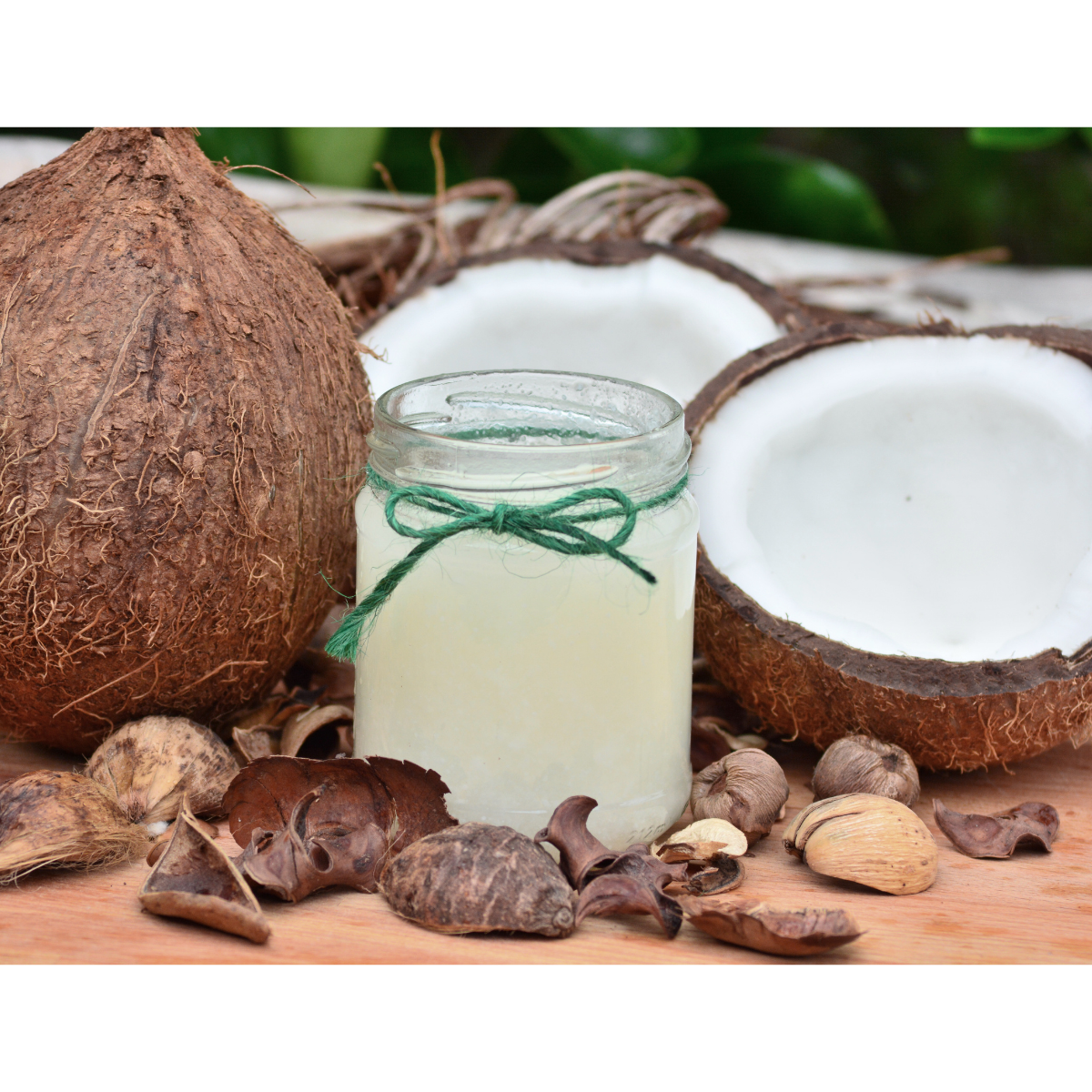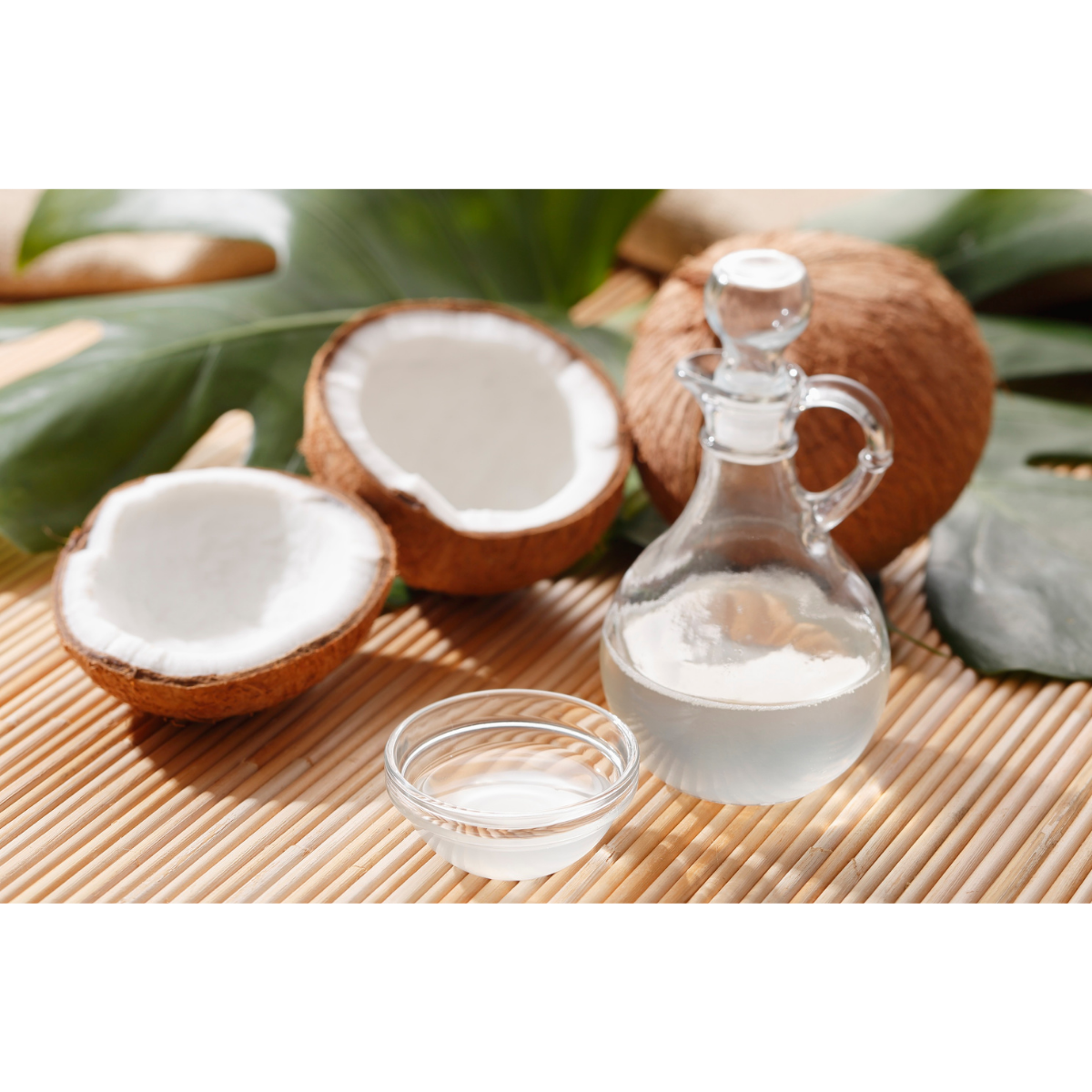Sattvic Foods
Goan Coconut Vinegar
🥥About
Coconut vinegar is a gently fermented, nutrient-rich vinegar made from the water of mature coconuts. At Sattvic Foods, our coconut vinegar stays true to traditional Goan methods—raw, unfiltered, and rich with the mother of vinegar. It's made slow and sourced locally, just the way it’s meant to be.
📍Source
Our coconut vinegar is fermented right here in Goa, using freshly tapped coconut water from nearby farms. The process is natural, slow, and undisturbed—no chemicals, no shortcuts. This method gives the vinegar its characteristic cloudy appearance, mild acidity, and depth of flavour.
🍽️ How to Use
Coconut vinegar is a versatile kitchen staple and a traditional remedy in many coastal Indian homes. Some ways to use it:
-
As a base for Goan dishes like vindaloo, sorpotel and rechado
-
To marinate meats or vegetables for better flavour and tenderness
-
Mixed with warm water as a daily wellness shot
-
In chutneys, dressings, or dipping sauces
-
As a natural preservative in pickles or spice pastes
🌿 Health Benefits
Coconut vinegar contains a wide spectrum of amino acids, vitamins, and minerals, along with acetic acid and naturally occurring probiotics.
It may help:
-
Support digestive and gut health
-
Improve metabolism and nutrient absorption
-
Aids in uric acid balance and liver function
-
Maintain stable blood sugar levels
-
Offer a natural, low-glycemic alternative to refined or synthetic vinegars
✨ Why Buy Ours
-
Made with single-origin coconut water, not concentrate
-
Slow-fermented with the mother – no dilution, no pasteurization
-
Free from synthetic acids, caramel colouring, or preservatives
-
Rooted in Goan food tradition and clean food practices
-
Backed by Sattvic Foods’ commitment to real, honest ingredients
❓Frequently Asked Questions
1. What is coconut vinegar used for?
Coconut vinegar is widely used in cooking, especially in Goan cuisine like vindaloo, sorpotel, and pickles. It’s also taken as a health tonic, added to dressings, used in marinades, or incorporated into fermented beverages.
2. Is coconut vinegar good for uric acid?
Some traditional practices suggest that coconut vinegar, like other natural vinegars, may help manage uric acid levels due to its acetic acid and antioxidant content. However, individual results vary, and it’s best used as part of a balanced diet.
3. Are there any side effects of coconut vinegar?
In general, coconut vinegar is safe when used in moderation. Start small and dilute when using as a health tonic.
4. Is coconut vinegar alcoholic?
No. While alcohol is a part of the fermentation process, it is fully converted to acetic acid. The final vinegar contains no residual alcohol.
5. How is coconut vinegar made?
It’s made by naturally fermenting coconut water. First, the sugars in the coconut water are converted into alcohol (by yeast), and then into vinegar (by acetic acid bacteria).
6. What’s the difference between coconut vinegar and white vinegar?
White vinegar is usually industrially produced, highly refined, and acidic. Coconut vinegar is naturally fermented, with a milder taste and added benefits like enzymes, minerals, and probiotics. It’s a more natural, nutrient-dense alternative.
7. Which is better: apple cider vinegar or coconut vinegar?
Both have similar benefits, but coconut vinegar has a lower glycemic index and may be gentler on the stomach. It also offers minerals like potassium and phosphorus from coconut water.
8. Is coconut vinegar good for fatty liver?
Some preliminary studies and anecdotal evidence suggest that acetic acid (found in vinegars) may help improve liver function and metabolism. Coconut vinegar could be part of a supportive diet, but it’s not a standalone cure.
Buy in Bulk
This product is not available for Retail sale at the moment but only in wholesale of 10 kgs or more
We have recieved your request successfully. We will get in touch with you soon.
Bulk Enquiry for
Goan Coconut Vinegar
🥥About
Coconut vinegar is a gently fermented, nutrient-rich vinegar made from the water of mature coconuts. At Sattvic Foods, our coconut vinegar stays true to traditional Goan methods—raw, unfiltered, and rich with the mother of vinegar. It's made slow and sourced locally, just the way it’s meant to be.
📍Source
Our coconut vinegar is fermented right here in Goa, using freshly tapped coconut water from nearby farms. The process is natural, slow, and undisturbed—no chemicals, no shortcuts. This method gives the vinegar its characteristic cloudy appearance, mild acidity, and depth of flavour.
🍽️ How to Use
Coconut vinegar is a versatile kitchen staple and a traditional remedy in many coastal Indian homes. Some ways to use it:
-
As a base for Goan dishes like vindaloo, sorpotel and rechado
-
To marinate meats or vegetables for better flavour and tenderness
-
Mixed with warm water as a daily wellness shot
-
In chutneys, dressings, or dipping sauces
-
As a natural preservative in pickles or spice pastes
🌿 Health Benefits
Coconut vinegar contains a wide spectrum of amino acids, vitamins, and minerals, along with acetic acid and naturally occurring probiotics.
It may help:
-
Support digestive and gut health
-
Improve metabolism and nutrient absorption
-
Aids in uric acid balance and liver function
-
Maintain stable blood sugar levels
-
Offer a natural, low-glycemic alternative to refined or synthetic vinegars
✨ Why Buy Ours
-
Made with single-origin coconut water, not concentrate
-
Slow-fermented with the mother – no dilution, no pasteurization
-
Free from synthetic acids, caramel colouring, or preservatives
-
Rooted in Goan food tradition and clean food practices
-
Backed by Sattvic Foods’ commitment to real, honest ingredients
❓Frequently Asked Questions
1. What is coconut vinegar used for?
Coconut vinegar is widely used in cooking, especially in Goan cuisine like vindaloo, sorpotel, and pickles. It’s also taken as a health tonic, added to dressings, used in marinades, or incorporated into fermented beverages.
2. Is coconut vinegar good for uric acid?
Some traditional practices suggest that coconut vinegar, like other natural vinegars, may help manage uric acid levels due to its acetic acid and antioxidant content. However, individual results vary, and it’s best used as part of a balanced diet.
3. Are there any side effects of coconut vinegar?
In general, coconut vinegar is safe when used in moderation. Start small and dilute when using as a health tonic.
4. Is coconut vinegar alcoholic?
No. While alcohol is a part of the fermentation process, it is fully converted to acetic acid. The final vinegar contains no residual alcohol.
5. How is coconut vinegar made?
It’s made by naturally fermenting coconut water. First, the sugars in the coconut water are converted into alcohol (by yeast), and then into vinegar (by acetic acid bacteria).
6. What’s the difference between coconut vinegar and white vinegar?
White vinegar is usually industrially produced, highly refined, and acidic. Coconut vinegar is naturally fermented, with a milder taste and added benefits like enzymes, minerals, and probiotics. It’s a more natural, nutrient-dense alternative.
7. Which is better: apple cider vinegar or coconut vinegar?
Both have similar benefits, but coconut vinegar has a lower glycemic index and may be gentler on the stomach. It also offers minerals like potassium and phosphorus from coconut water.
8. Is coconut vinegar good for fatty liver?
Some preliminary studies and anecdotal evidence suggest that acetic acid (found in vinegars) may help improve liver function and metabolism. Coconut vinegar could be part of a supportive diet, but it’s not a standalone cure.




- Choosing a selection results in a full page refresh.
- Opens in a new window.




